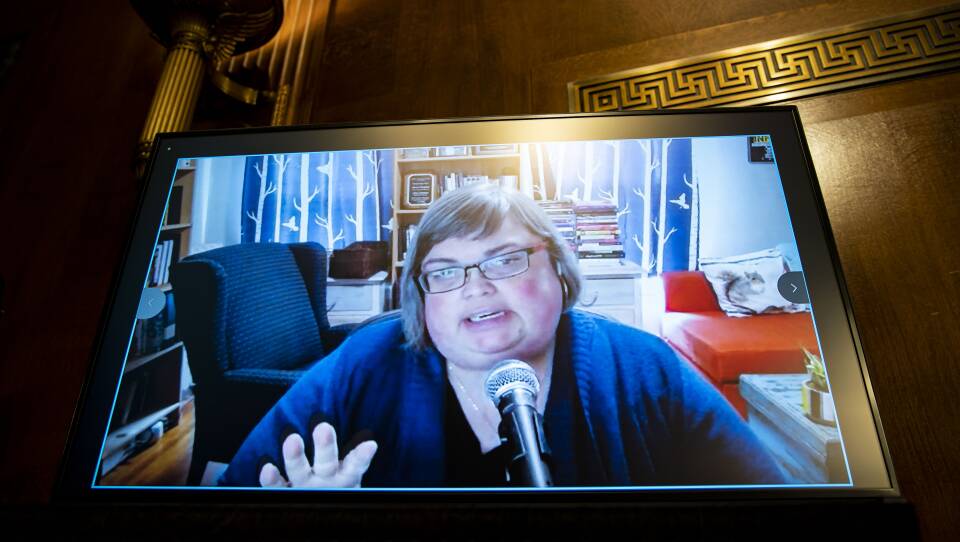"The violence, the misogyny, the transphobia — it's for clicks," said Joan Donovan, Boston University professor of journalism and emerging media studies.
There's been a meteoric rise of influencers like Andrew Tate, who has figured out how to "play the algorithms" on social media to spread his misogynistic messages. He's asked his audience to engage with and share his content. Because of that distribution strategy, Donovan said, Tate has a wider reach than some major news organizations.
"He professes to teach men how to be the alpha male and how to take control of situations and put women in their place. ... Unfortunately, the situation is such that many young people do feel that his advice is sound," Donovan said Monday on Boston Public Radio.
She explained that men may connect with this type of media because they feel they have been disempowered, and content like Tate's can legitimize those feelings while seemingly offering a solution: demanding power over women. (Tate once asserted that “If more men walked around the house with swords, most of the world’s problems would be fixed." )
"Some of these people are making a lot of money at the expense of women's safety and security," Donovan said.
Donovan offered the example of Gamergate. It began with a campaign against video game developer Zoë Quinn, whose boyfriend launched accusations that she cheated on him with a games journalist in order to earn her positive video game reviews. Despite their relationship being true, the claim that it assisted in generating positive reviews for her game was proven to be false, as reported by The New Yorker and Deadspin .
"It made a movement of men believe that women were out to get them," Donovan explained. Those men coordinated efforts to harass women in the video game industry. They sent rape threats, death threats, and even reported false crimes in order to have police raid those women's homes.
Donovan said that while misogyny is not new, social media has changed the landscape and amplified the spread of misogynistic content.
Hema Sarang-Sieminski, deputy director of Jane Doe Inc., is working closely on raising awareness about the problem with power and control in a relationship. She explained that domestic abuse does not always manifest in physical ways; an abusive relationship can broadly be defined by a pattern of behavior in which someone attempts to control their partner.
"Examples that include everything from trying to control the technology use of a partner, trying to monitor communications, keeping a partner from seeing individuals from their cultural community or their family members — really trying to monitor and surveil the whereabouts of an individual," Sarang-Sieminski said.
She said there's a nationwide movement to recognize coercive control as a form of abuse, and update our laws accordingly.
Jane Doe Inc. is spearheading a policy effort that would expand protection for victims of abusive relationships.
"Currently, in order to obtain a restraining order, a survivor would need to show that ... either have been harmed or are in imminent fear of some kind of severe physical harm," Sarang-Sieminski said. The proposed Bill H.4115 would add "coercive control" as a manifestation of abuse that would merit a restraining order.
If you or someone you know is affected by domestic or dating violence, please call the National Domestic Violence Hotline at 1-800-799-7233 or the National Sexual Assault Hotline at 1-800-656-4673.







